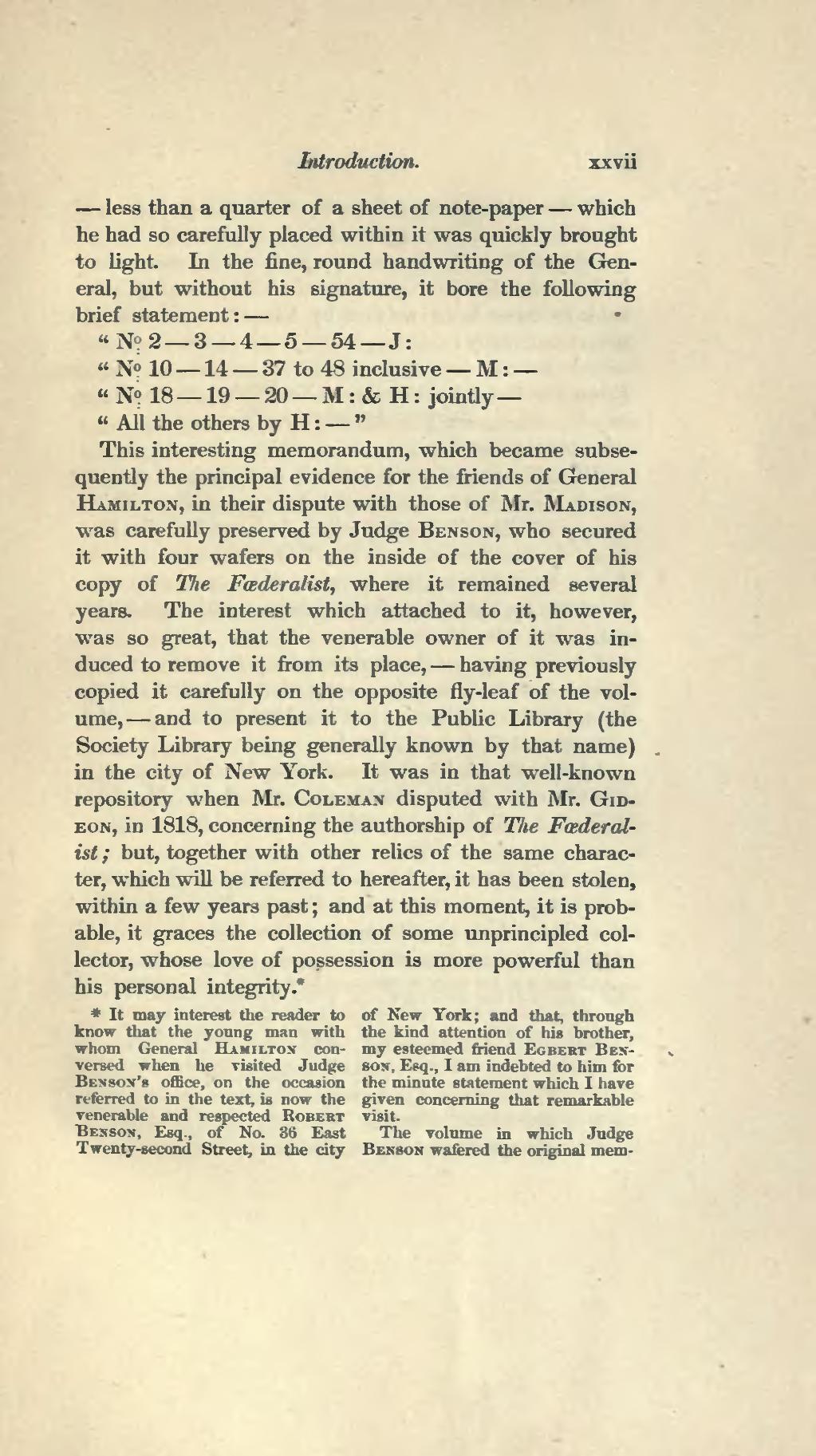—less than a quarter of a sheet of note-paper—which he had so carefully placed within it was quickly brought to light. In the fine, round handwriting of the General, but without his signature, it bore the following brief statement:—
"No. 2—3—4—5—54—J:
"No. 10—14—37 to 48 inclusive—M:—
"No. 18—19—20—M: & H: jointly—
"All the others by H:—"
This interesting memorandum, which became subsequently the principal evidence for the friends of General Hamilton, in their dispute with those of Mr. Madison, was carefully preserved by Judge Benson, who secured it with four wafers on the inside of the cover of his copy of The Fœderalist, where it remained several years. The interest which attached to it, however, was so great, that the venerable owner of it was induced to remove it from its place,—having previously copied it carefully on the opposite fly-leaf of the volume,—and to present it to the Public Library (the Society Library being generally known by that name) in the city of New York. It was in that well-known repository when Mr. Coleman disputed with Mr. Gideon, in 1818, concerning the authorship of The Fœderalist; but, together with other relics of the same character, which will be referred to hereafter, it has been stolen, within a few years past; and at this moment, it is probable, it graces the collection of some unprincipled collector, whose love of possession is more powerful than his personal integrity.[1]
- ↑ It may interest the reader to know that the young man with whom General Hamilton conversed when he visited Judge Benson's office, on the occasion referred to in the text, is now the venerable and respected Robert Benson, Esq., of No. 36 East Twenty-second Street, in the city of New York; and that, through the kind attention of his brother, my esteemed friend Egbert Benson, Esq., I am indebted to him for the minute statement which I have given concerning that remarkable visit.
The volume in which Judge Benson wafered the original mem-

